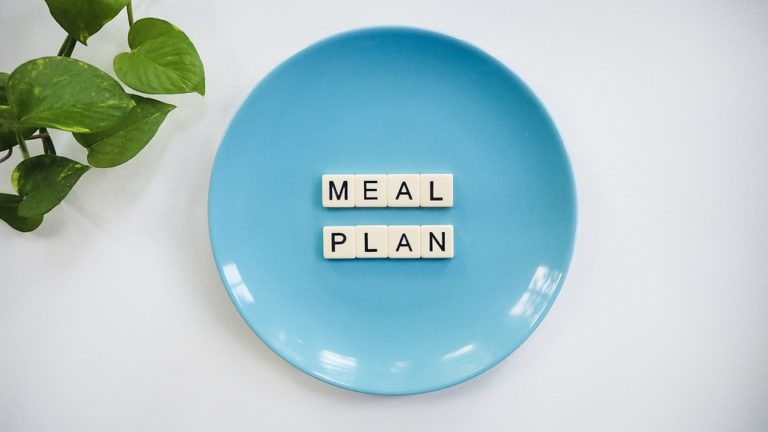Natural Remedies for Bloating
Bloating is your body’s way of letting you know that something isn’t right. When you understand the cause, natural remedies for bloating can provide excellent relief.
Finding relief for bloating.
At times it can be pretty straightforward and easy to work out why especially when you eat unusual foods or you make changes to your daily food habits. Other times it’s not as easy to figure out the reason behind bloating and some detective work (aka tuning into your body) might be needed. It can also be complicated from issues with irritable bowel syndrome or inflammatory bowel disease.
Natural remedies for bloating.
The good news is that there are pretty helpful and simple natural hacks to help you reduce bloating within minutes. So instead of reaching for your elastic-band trousers or a baggy jumper, check out some of my favorite home remedies for decreasing abdominal bloating:
Note: I discovered most of these hacks after a few horrendous bouts of bloating myself a few years back. I’m talking feeling 6 months pregnant, agonizing gas and cramps, and literal shooting pain when going to the bathroom. When I made some simple changes (as you’re about to read), they made a big difference. Here’s to bloat and gas free days for all! 🙂
Skip sugar-free gum.
Sure, sugar-free gum and candies are lower in calories, but they also contain sugar alcohol—sugars that have been bound with alcohol so that your body digests only part of the sugar. The partial-digestion process can cause gastrointestinal side effects including bloating, gas, and even diarrhea.
***This goes for many diet snacks and drinks that contain sugar alcohols. Everyone reacts to them differently so tune in and see what happens. For me, every time I try to add a protein powder or eat a bar with erythritol I instantly regret it. Make sure to read those labels!

Avoid eating for at least two hours before bed.
Not only does eating late at night mess with your natural “fast” and potentially discombobulate a healthy circadian rhythm, but it can also induce unwanted bloating. Letting your digestive system rest for a full 10 to 12 hours each night sets your metabolism up for success so it’s not hard at work digesting your food when it’s biologically designed to take it easy.
***Make sure you’re eating enough during your eating window so that you don’t feel hungry during the night. This means eating high quality protein, fiber (mainly from produce), and healthy fats.
Stop using straws.
Anything that encourages gulping of air into your digestive system can lead to bloating. Thus includes eating too quickly, use of straws, and chewing gum. So skip the straw, they’re terrible for the environment anyways, and take the time to eat your food slowly and actually enjoy it.
Consider cutting dairy.
Many people have some form of lactose intolerance, which makes digesting dairy products difficult. If your body can’t break down lactose, consuming any food that contains dairy can result in gas pain, bloating, diarrhea, or constipation.
***Skip cereal and milk and start your day with eggs and veggies, or toast with all-natural peanut butter. I’ve found the quality of the dairy products seem to make a difference too. I’ve cut out all those scary yellow cheeses and milk completely. Now, when I enjoy grass fed butter or high quality mozzarella, goat cheese, or feta, I can do so without all the side effects.

Ease up on fiber.
A high-fiber nutrition bar seems like a healthy, low-calorie snack to help stave off hunger between meal. However, if your stomach can’t handle all the fiber. Processed fiber found in cereals and bars can ironically be hard for the body to process.
***Trade those processed grains in for whole grains, nuts, seeds, fruits, and vegetables. All excellent sources of fiber. You will know you’re getting enough fiber when you easily have a daily bowel movement.
Don’t carb-load at dinner.
Or at least, choose wisely, avoiding refined carbs and minding your portion size. Highly processed grains, oils, and sugars can cause you to retain water and feel bloated. Thus, if you want to wake up feeling light and lean, reach for a carbohydrate that’s satiating but features complex carbohydrates like brown rice, quinoa, or sweet potatoes.
***I’ve learned that the best time to enjoy my carbs are in the middle of the day when I can use that extra boost of energy. I try to avoid breads, pastas, and white rice as much as possible in the evenings (some days it works better than others, but progress is better than perfection).

Set down the soda.
You know that bubbly drinks make you burp from the carbon dioxide, which is your body’s way of getting rid of excess air in your stomach. But when gas doesn’t escape via belching, it can build up and make you bloated and cause abdominal pain. Plus, all that additional sugar and processed chemicals (food coloring, preservatives, and natural flavors) can lead to water retention and low energy as the body works hard to figure out what to do with it.
***Soda has no nutritional value. Just step away from it if you can. Trade it in for drinks that can actually promote better digestion such as green tea, ginger tea, peppermint tea, fennel tea (or you can even eat fennel seeds!) or water with a shot of lemon juice and/or apple cider vinegar. It may take some getting used to, but as your taste buds adjust your gut will thank you.

Keep moving to relieve bloating.
Going for a brisk walk after a meal can boost digestion and help food move efficiently through your GI tract. Exercise can also work to expel excess gas from your intestinal tract and promote regular bowel movements, helping your body beat bloat.
On the flip side, avoid eating large meals right before moderate to vigorous exercise. This can actually impede digestion and make bloating symptoms worse.
Pay attention to the sequencing of food and water intake.
Drinking excessive amounts of fluid right before or after a meal, eating fruit on a full stomach, and how it affects your ability to poop daily all contribute your body’s levels of bloat.
Try to avoid drinking water 10-30 minutes before and after your bigger meals. Do not consume excessive food or drink before exercise or sleep. Lastly, pay attention to how you sequence what you’re eating. For example, if you consume fruit right after a heavy meal, it will spend excess time in your gut. When food spends too much time in the gut it leads to bloating.
***This was the biggest game changer for me. I liked to eat fruit after lunch and dinner to curb my sweet tooth. When I waited to have my fruit for a mid-day snack, it significantly improved any issues with bloating.

Manage your stress.
Stress increases cortisol levels, lowers testosterone, and leads to insufficient recovery of the body. This leaves your digestive tract struggling to do it’s job efficiently. Make sure you’re getting a good night’s rest and have good relaxation techniques in place to promote hormone balance and period of adequate rest for the body.
Relieve bloating with good health habits.
There are many natural methods to alleviate bloating and digestive discomfort that only take minutes of your time, yet seriously improve your health. The best part is that all of the ways to reduce bloating are also good for your health for many other reasons.
It all comes down to your poop schedule.
Talking about a poop schedule can be a touchy, embarrassing topic. But it shouldn’t be, we all do it and it is so important for optimized digestive health. One of the biggest themes for all of these remedies is promoting better digestion and bowel movements. If you aren’t properly breaking down, absorbing, and then expelling the food you’re eating, bloating will surely follow. So, after reading through these tips, start with the one suggestion (or two) that sounds promising and easy to complete. Then, build form there.
Chronic bloating isn’t normal.
If you’ve found yourself in a perpetual cycle of bloating, don’t settle for it being your norm. I have noticed that my bloating gets out of control when I feel stressed.
After reading about these natural remedies for bloating, have you noticed there are certain foods, stress, or other habits that affect your levels of bloat? I’d love to hear!




